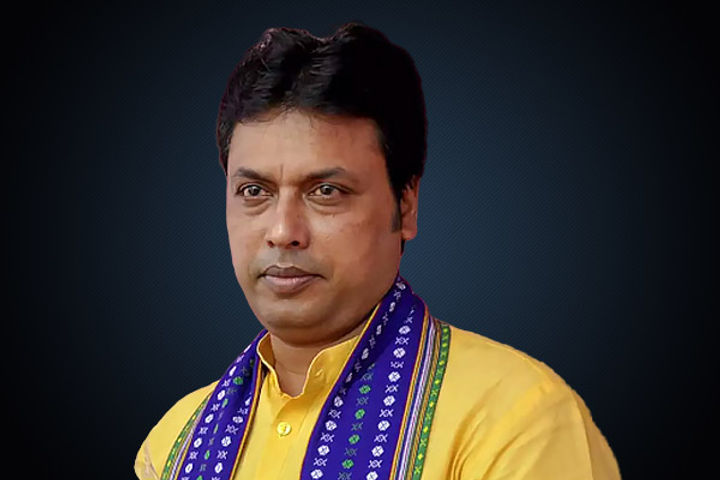Terrorists and communal forces have no religion, however much they try to claim championing one religious cause or another. The veneer of religion is used only to unleash fear and trigger tension with an ulterior motive to capture power. Nor do they have any specific geographical frontiers. This is once again proved in the post Durga Puja violence against Hindoos in Bangladesh which found disturbing repercussions in neighbouring Tripura as well. Tension in the north-eastern state has escalated during the past few days to such an extent that the state administration has now been forced to bring all the mosques under its protective cover.
Clarifying the administration’s response, Tripura Director General of Police (DGP) VS Yadav said some ‘unknown miscreants’ tried to disrupt communal harmony in the state but their attempts were foiled due to the deployment of police. Around 150 mosques are being provided protection. In fact, all the mosques across the state are said to be under security cover. Earlier, a series of protests were held by some groups, including the Vishwa Hindu Parishad and the Hindu Jagran Manch, across the state to protest the violence in Bangladesh. During one such protest, at least 12 persons, including three police officers, were injured in the Maharani area under the Udaipur sub-division of Tripura’s Gomati district.
The fact that the protest rallies were organised despite the police strictly refusing to grant permission for such mobilisation fearing communal flare-up shows the situation to be precarious. Tripura shares 856 km semi-porous international border with Bangladesh.
The Tripura State Jamiat Ulama (Hind) has submitted a petition to Chief Minister Biplab Deb alleging that mosques and homes of Moslems were targeted by protesters. Realising the gravity of the situation, the state administration did not waste time and provided security to all mosques which was later confirmed by Tripura State Jamiat Ulama president Mufti Tayebur Rahman.
Tripura has in the past been plagued by communal and ethnic strife. It is indeed a cause for concern that changing political fortunes in the state has caused the relative peace prevailing there for the past two decades to come under severe strain.
Analysts point out that certain forces seem to have found the communal flare-up in Bangladesh during the Durga Puja as godsend, considering the fact that Tripura will be going to polls in the next few months and the BJP’s performance in the state under Biplab Deb has come under a cloud. His popularity is believed to be nosediving. In such a situation, the trouble in Bangladesh seems to be tailor-made for political benefit in India. Questions are being raised about the apparent intelligence failure of both Bangladesh and India. The provocative incident took place at a pandal in Comilla and within hours more than half of Bangladesh – 34 of 64 districts – was engulfed in communal trouble. If the Bangladesh Opposition party, Bangladesh Nationalist Party (BNP) of Begum Khaleda Zia, is believed to be a beneficiary of the communal passion whipped up by the Jamaat-e-Islami, as stated by a Bangladesh minister, the BJP in Tripura may cash in on the polarisation for electoral gains.
This is an unfortunate development not only in Tripura, but the entire north-east. The region has been a hotbed of tension and religious-ethnic conflagration since the partition that fuelled violent insurgency in the 1990s. The past few years of peace have, however, helped Tripura revamp its economy and transform itself into a key player in India’s Act East policy, the success of which depends largely on friendly relations with Myanmar and Bangladesh.
In fact, the whole of north-east is again on the boil and communal-ethnic politics is mainly responsible for it. Identity politics is rearing its ugly head in Assam and Meghalaya. The polarisation caused by the government’s push on the National Register of Citizenship (NRC) and Citizenship Amendment Act (CAA) has not been contained in Assam even after the recent Assembly elections. The government’s eviction drive against Moslem peasants suspected to be encroachers bringing death and disturbance in its train seems to have deepened the divide. An inter-state border dispute involving Assam and Mizoram has been responsible for the killing of six police personnel in July. The anti-outsider politics in Meghalaya has got a shot in the arm following attempts to evict a small Dalit Sikh community from their century-old settlement in Shillong. The peace deal with the NSCN-IM in Nagaland has gone haywire.
Under these circumstances, it would be in the fitness of things for the Centre to instruct the government of Tripura, controlled by the BJP, to respond with all urgency and sincerity to the appeal of Bangladesh Prime Minister Sheikh Hasina, to ensure there is no escalation of tension within Indian borders and desist from playing with fire through vote-bank politics.
